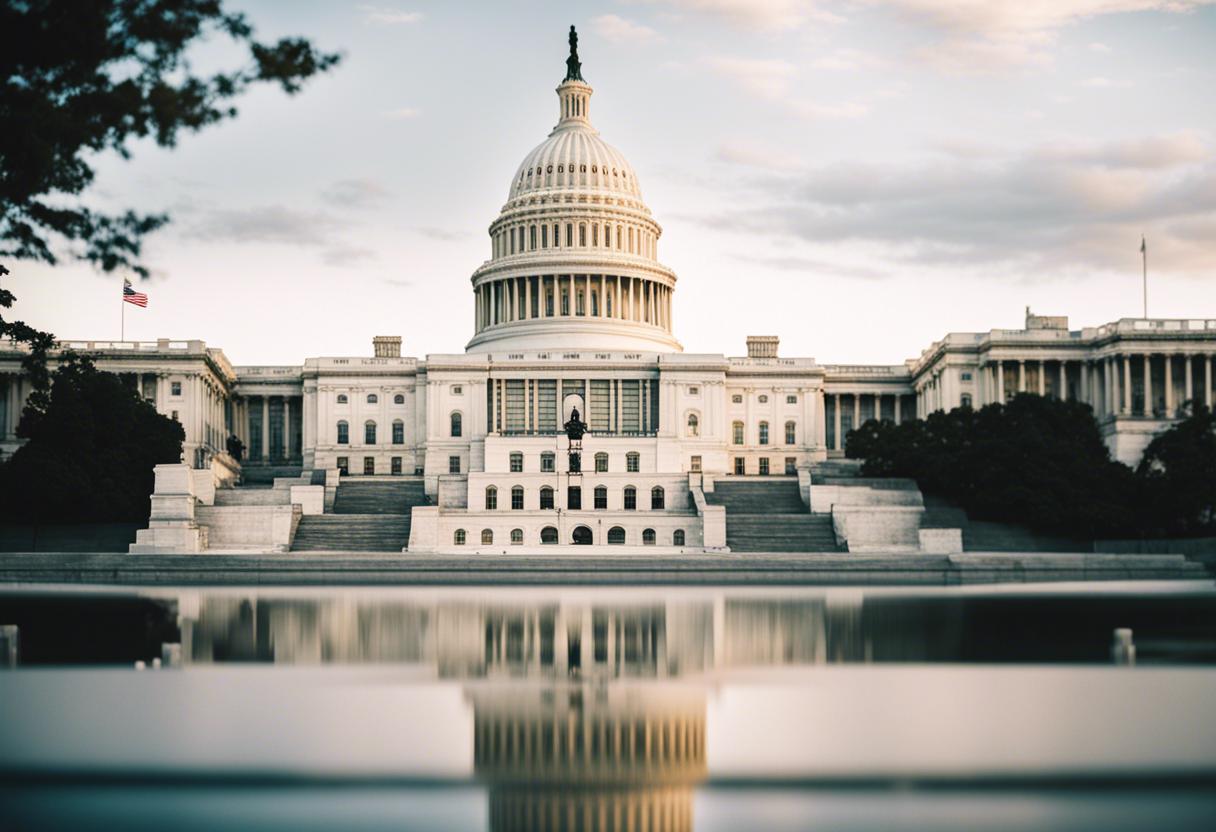Two days prior to the point when American President Joe Biden acknowledged his political journey was coming to a close, the Secretary of Transportation, Pete Buttigieg, was a guest on the political chat show Real Time, hosted by Bill Maher on HBO.
Buttigieg, similar to JD Vance, hails from the Midwest, specifically South Bend, Indiana. His background includes military service as a naval officer and an education from an Ivy League university. Buttigieg, at 42, is three years senior to the nominee for the Republican vice-presidency. Additionally, he is the first openly homosexual politician in the U.S. to hold a cabinet position.
During the dialogue, Buttigieg was quizzed about the apparent incongruity of Peter Thiel, a billionaire based in Silicon Valley who is also homosexual, backing Vance, who vocally opposes gay marriage. Buttigieg provided an explanation, suggesting that what may seem like a blatant inconsistency could also be viewed as simple pragmatism, before skillfully shifting the discussion towards a critique of the newly emerging figurehead of Trump’s Republican Party.
His view was that wealthy men like these choose to support the Republican Party, as it generally operates in their favour. He then drew a comparison with Vance, a man he met many individuals similar to during his time at Harvard. These are people who, as he suggested, would say anything to further their own progression. As recent as five years ago, being an anti-Trump Republican was an advantageous position, and thus, that’s what he became.
He discussed how Vance labeled Trump as unfit and cynical, even going as far as comparing him to an opioid – unusual terminology for an individual. But for someone who associates themselves with Appalachia, a region battling an opioid crisis, this was possibly the most damning thing to say publicly about Donald Trump. However, off the record, he was allegedly referring to him as Hitler. Then, five years on, he switched stance, proclaiming Trump to be the greatest thing since sliced bread.
Expressing a parallel with former Indiana Republican governor Mike Pence, the speaker noted that Vance, too, had begun by espousing strong Christian beliefs and family values but ended up compromising these principles for political gain. In Pence’s case, this led to his alliance with a controversial figure and a resulting four-year vice-presidential term. His position of power, however, ended disastrously, with the very supporters of his ally suggesting he be executed for his sole act of moral courage – opposing an attempted government coup. The speaker sends a hopeful message to Vance, hoping his political future doesn’t mirror Pence’s.
The political commentary took social media by storm, standing out amidst the intense period of Democratic consternation over the waning communicative efficiency of their leader. With his eloquent and spontaneous analysis of a rival, a spotlight was placed on one of the most notable Democratic party members. Vance’s potential for vice presidency was significantly credited to his debate and communication skills, blunting any disappointment caused by a lacklustre acceptance speech at the Republican Convention. This raised the prospect of a stirring debate between Vance and Buttigieg.
In a twist of events, Buttigieg’s introduction changed the picture of the post-convention 2024 electoral landscape. His presence underscored the vast array of talented potential deputies available for Kamala Harris’s selection – a cache so vast that Buttigieg may not even make it to the final shortlist.
If Harris secures the Democratic nomination for presidency, she will face the challenge of selecting the optimal running mate to counter the Trump-Vance leadership. This decision is expected to inject fresh vitality into the Democratic campaign.
Besides other prominent individuals like Buttigieg and Gretchen Whitmer, governor of Michigan, who may offer a purely female partnership with Harris, there’s a substantial group of governors from pivotal states who could assist her in tilting these key regions. Thus, Mark Kelly, the Senator of Arizona who claimed the spot previously held by John McCain – becoming the first Democrat to do so since 1962 – has emerged as a contender.
His influence as a popular senator from a border state could enable him to address powerfully and credibly one of the issues the Republicans may attempt to paint as a Harris weak point – the border and immigration. Nonetheless, Harris has other strong possibilities in Joshua Shapiro, the governor of Pennsylvania, and Roy Cooper, a governor from North Carolina. Even though Trump secured North Carolina in both 2016 and 2020, the Biden-Harris team made considerable efforts to win this state, opening 11 campaign offices there.
While it’s almost guaranteed that Gavin Newsom, the governor of California, is out of contention considering both he and Harris hail from the same state, Harris might still consider another white, male potential running mate. These options could include a wealthy individual like JB Pritzker, the Illinois governor linked with the Hyatt hotel family, or 46-year-old Andy Beshear, twice-elected governor of Kentucky. However, introducing these contenders to voters as recognisable figures and voices could pose a challenge given the limited time available.
Harris will undeniably have a wealth of talent to choose from in her search for a running mate. Crafting a credible alternative to the Trump-Vance duo that maintains balance and visual appeal is her initial crucial test of judgment.

